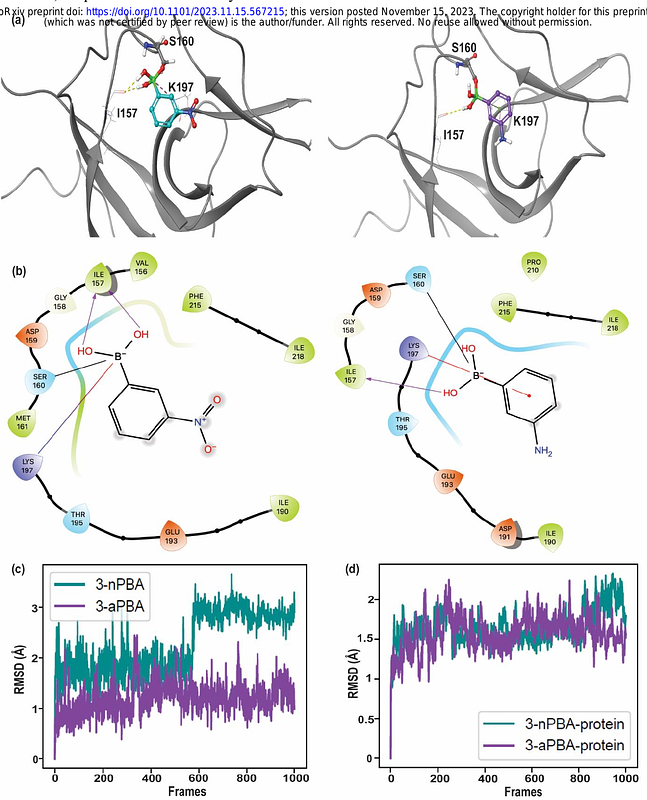Boronic acid derivative inhibits LexA mediated SOS response in Mycobacteria

Boronic acid derivative inhibits LexA mediated SOS response in Mycobacteria
Chatterjee, C.; Mohan, G. R.; Chinnasamy, H. V.; Biswas, B.; Sundaram, V.; Srivatsava, A.; Matheshwaran, S.
AbstractAntimicrobial resistance (AMR) properties of several pathogens pose as one of the major global concerns demanding continuous innovation in order to be controlled. The bacterial SOS response, regulated by LexA and RecA, contributes to AMR through advantageous mutations. Therefore, targeting LexA/RecA system with a novel inhibitor could suppress SOS response and may reduce AMR. However, RecA presents a challenge as a therapeutic target due to its conservation across species, including humans. Concurrently, LexA, being absent in eukaryotes, can be potentially targeted, in part, due to its association with SOS response and developing AMR. Our studies combining bioinformatic, biochemical, biophysical, and cell-based assays present a unique inhibitor of mycobacterial SOS response wherein we show that the inhibitor interacts directly with the catalytic site residues of LexA of Mycobacterium tuberculosis (Mtb), consequently hindering its cleavage, resulting in suppression of SOS response. We observed important genes under the SOS regulon to be down-regulated in the presence of the inhibitor along with a consequent reduction in the rate of mutation frequency of mycobacterial cells. In essence, this study may facilitate further research on potential LexA inhibitors, reducing mutational rates and offering promise in mitigating AMR.